WHAT IS THE ROLE OF MAGNESIUM IN THE HUMAN BODY?
Magnesium is an essential mineral for life. It participates in over 300 enzymatic reactions in the body and plays a crucial role in the functioning of many biological systems.
Here are its basic functions:
Nervous system function: Magnesium contributes to the transmission of nerve impulses. It helps regulate the excitability of neurons, making it an ally against anxiety, stress and sleep disorders.
Muscle function: Participates in the contraction and relaxation of muscles and helps prevent cramps, spasms or muscle twitches (such as eyelid tremors).
Heart health: Magnesium plays a role in regulating heart rhythm and helps maintain normal blood pressure.
Bone and tooth strength: In conjunction with calcium and vitamin D, it helps maintain strong bones and prevent demineralization.
Energy metabolism: Participates in the production of energy from nutrients and helps reduce physical and mental fatigue.
Immune system support: Supports the body's proper immune response.
Magnesium is therefore essential for the proper functioning of the human body, from nervous balance to muscle strength, including bone health and the cardiovascular system.
WHAT ARE THE HEALTH BENEFITS OF MAGNESIUM?
Magnesium is an essential mineral that plays a crucial role in over 300 enzymatic reactions in the body. It contributes to various biological functions and has many beneficial effects on health. Here is an overview of the main benefits of magnesium for the human body:
Reducing stress and anxiety
Magnesium is known for its calming effects on the nervous system. It helps regulate mood-related neurotransmitters, such as GABA (gamma-aminobutyric acid), which plays a role in muscle and nerve relaxation. Magnesium deficiency can increase the production of cortisol, the stress hormone. Therefore, maintaining adequate magnesium levels can reduce symptoms of anxiety and restlessness.
Improving sleep quality
Magnesium is also associated with better sleep quality. It helps relax muscles and promotes faster onset of sleep. In addition, it plays an important role in regulating the synthesis of melatonin, the hormone responsible for managing the sleep-wake cycle. For people suffering from sleep disorders or insomnia, adequate magnesium intake can improve the duration and depth of sleep.
Preventing muscle cramps
Magnesium is essential for proper muscle function. It helps prevent muscle cramps by regulating muscle contraction and relaxation. It is especially useful for athletes or people exposed to intense physical exertion. Magnesium deficiency can lead to cramps, muscle pain and increased muscle fatigue.
Blood pressure regulation
Magnesium plays an important role in regulating blood pressure. It helps relax blood vessel walls, which helps maintain normal blood pressure. Magnesium deficiency has been associated with an increased risk of hypertension, which can increase long-term cardiovascular risks. Therefore, adequate magnesium intake is essential for preventing heart problems.
Supporting bone health
Magnesium is an essential mineral for bone health. It contributes to the formation of the skeleton and the binding of calcium to the bones. In combination with calcium and vitamin D, magnesium helps prevent osteoporosis and strengthen bone density. Elderly people in particular can benefit from magnesium supplementation to reduce the risk of fractures and osteoporosis.
Improving insulin sensitivity
Magnesium plays a role in insulin sensitivity, which is especially important for people at increased risk of developing type 2 diabetes. Studies have shown that adequate magnesium levels can help regulate blood sugar and improve the action of insulin in the body. Therefore, magnesium may be useful in the prevention and management of type 2 diabetes, especially in cases of insulin resistance.
Magnesium is an essential mineral for many biological processes in the body. It helps reduce stress and anxiety, improves sleep quality, prevents muscle cramps, regulates blood pressure, supports bone health and enhances insulin sensitivity. Ensuring adequate magnesium intake is therefore vital for maintaining optimal well-being and preventing certain health problems.
WHICH FOODS ARE RICH IN MAGNESIUM?
Magnesium is an essential mineral for the proper functioning of the human body. To prevent deficiency and maintain optimal magnesium levels, it is important to include magnesium-rich foods in your daily diet. Fortunately, magnesium is found in many plant-based foods as well as some mineral waters.
Here are the main natural sources of magnesium that you should prefer to meet your needs:
Seaweed
Seaweed, such as wakame and kombu , are excellent sources of magnesium. They can contain up to 2,500 mg of magnesium per 100 g. Although often consumed in small amounts, their nutritional density makes them a strong choice for boosting your daily magnesium intake. Seaweed is also rich in other essential minerals and nutrients, making them a great addition to soups, salads or sushi.
Corn germ
Corn germ is a highly nutritious food, providing approximately 550 mg of magnesium per 100 g. It can be easily added to various dishes such as salads, muesli or smoothies. In addition, corn germ is also a source of other essential nutrients, such as vitamins B and E, which contribute to overall health.
Unsweetened cocoa powder
Pure cocoa is not only delicious but also an excellent source of magnesium, with 410 to 415 mg per 100 g. It is recommended to choose pure cocoa or dark chocolates with a high cocoa content (at least 70%) to fully benefit from the benefits of magnesium, avoiding added sugars. Cocoa is also rich in antioxidants and may improve heart and brain health.
Wheat germ
Wheat germ, a commonly used ingredient in diet preparations, provides approximately 400 mg of magnesium per 100 g. It is easy to incorporate into meals by sprinkling it on yogurt, cereal or salads, offering a great way to vary your daily magnesium sources. In addition to magnesium, wheat germ is also rich in essential fatty acids and B vitamins.
Brazil nuts
Brazil nuts are also an excellent source of magnesium, containing between 225 and 230 mg per 100 g. These nuts are also rich in selenium, an essential mineral for the immune system, making them a particularly beneficial snack. Eaten in moderation, Brazil nuts provide a good amount of healthy fats and protein.
Almonds
Almonds are not only an excellent source of magnesium (254 mg/100 g), but they are also rich in unsaturated fatty acids that are beneficial for heart health. A small handful of almonds each day can help increase magnesium intake, while providing fiber and antioxidants. They are ideal as a snack or as an ingredient in salads and desserts.
Dried white beans
Dried white beans are another plant-based source of magnesium, containing about 140 mg per 100 g. In addition to magnesium, they are rich in fiber and plant-based protein, making them an excellent food for maintaining optimal nutritional balance. White beans can be used in soups, salads or stews.
Oatmeal
Oatmeal is a healthy breakfast option, providing 145 to 150 mg of magnesium per 100 g. Thanks to its ability to induce a feeling of satiety and its low glycemic index, oatmeal helps maintain steady energy levels throughout the morning. It is also a good source of soluble fiber, which promotes gut health.
Wholemeal bread
Unlike white bread, whole wheat bread retains the nutrients of the wheat, including magnesium, with about 90 mg per 100 g. Whole wheat bread is a good source of fiber and nutrients that promote digestive and cardiovascular health. It can be easily incorporated into the daily diet, especially for those looking for a healthier alternative to processed bread.
Spinach
Spinach is a green vegetable rich in magnesium, with about 50 mg per 100 g. This vegetable is very versatile and can be eaten raw in salads or cooked in soups, omelets or stews. In addition to magnesium, spinach is also an excellent source of vitamins A, C and K, as well as iron.
To ensure adequate magnesium intake, it is essential to vary your food sources. A balanced diet, consisting of green vegetables, legumes, nuts, and whole grains, is the best strategy for maintaining good magnesium levels. By including these foods in your daily meals, you can prevent deficiencies and take advantage of the many health benefits that magnesium offers.
WHAT ARE THE SIGNS OF MAGNESIUM DEFICIENCY?
Magnesium is essential for many biological functions and insufficient intake can lead to various symptoms, sometimes subtle at first. Recognizing these signs allows for timely action to adjust the diet or, if necessary, consider taking supplements.
Persistent fatigue
One of the first signs of magnesium deficiency is unexplained, persistent fatigue that doesn't go away despite rest. Magnesium plays a role in cellular energy production, so deficiency can lead to physical and mental exhaustion.
Muscle cramps
Night cramps, muscle pain, or involuntary leg twitches are often signs of magnesium deficiency. This mineral plays a fundamental role in muscle relaxation.
Eyelid twitching (myokymias)
Small involuntary movements of the eyelids, sometimes accompanied by discomfort, often indicate insufficient magnesium intake. Although benign, this symptom should not be ignored.
Numbness or tingling
Feelings of tingling or numbness in the hands, feet, or limbs may also indicate a neuromuscular disorder related to deficiency.
Anxiety and irritability
Magnesium has a regulating effect on the nervous system. A deficiency can manifest as increased irritability, restlessness, mood swings or intense anxiety, even without an obvious cause.
Headaches
Frequent headaches or migraines may be related to mineral imbalances, particularly magnesium deficiency. Some studies suggest a link between deficiency and migraine frequency.
Sleep disorders
Difficulty falling asleep, awakenings during the night, or restless sleep can also be caused by magnesium deficiency, which plays a key role in relaxing the nervous and muscular systems.
If in doubt, a blood test can help check magnesium levels. However, because magnesium is mainly stored in the tissues (and not in the blood), tests do not always reveal a functional deficiency . A proper diet, rich in natural sources of magnesium, remains the best prevention.
What are the daily magnesium needs?
Magnesium needs vary depending on age, gender and certain specific situations such as pregnancy or intense physical activity. Adequate intake is essential for the proper functioning of the body, especially with regard to the nervous, muscular and cardiovascular systems.
Recommendations by age and gender:
Adult men
Average needs are estimated at approximately 380 mg per day. This amount may increase in cases of stress, significant physical exertion or an unbalanced diet.
Adult women
The recommended intake is around 300 mg per day. This need is slightly lower than that of men, but can also vary depending on lifestyle and hormonal cycles.
Pregnant women
Needs generally remain around 300 mg per day, but some sources recommend a small increase, particularly during the third trimester, to support fetal development and prevent frequent cramps during pregnancy.
Children (7–10 years old)
At this age, needs are estimated at 240 mg per day. A varied and balanced diet generally covers these needs without supplements.
Teenagers (15–17 years old)
During growth, adolescents have increased needs. These are estimated at 295 mg per day, mainly due to hormonal activity, bone growth and energy expenditure.
WHAT FACTORS CONTRIBUTE TO MAGNESIUM DEFICIENCY?
Magnesium deficiency can result from a variety of external or internal factors. Certain lifestyle habits, medical conditions, or treatments can increase magnesium needs or disrupt its absorption. Here are the key factors to consider.
Unbalanced diet
A diet low in magnesium-rich foods is one of the main causes of deficiency. Diets high in processed foods (white bread, sugar, processed meals) and low in fruits, vegetables, whole grains, and legumes can lead to magnesium deficiency. Indeed, this mineral is mainly found in unprocessed foods.
Chronic stress
Stress, especially when prolonged, negatively affects the body's magnesium stores. Stress stimulates the production of cortisol, a hormone that increases the excretion of magnesium through the urine. Therefore, stressed or anxious people are at greater risk of deficiency, especially if their diet is inadequate.
Excessive alcohol consumption
Alcohol can reduce the absorption of magnesium in the intestine and promote its excretion by the kidneys. Excessive alcohol consumption also disrupts the metabolism of electrolytes, including magnesium, thereby increasing the risk of deficiency. This is especially true for people who consume large amounts of alcohol regularly.
Use of certain medications
Some medications can affect the absorption or use of magnesium in the body. These include diuretics, which increase the loss of minerals through urine, as well as some antibiotics and birth control pills, which can also disrupt the balance of minerals. It is important to talk to a healthcare professional if you are taking these medications and are concerned about your magnesium levels.
Intestinal diseases
Digestive disorders can also contribute to magnesium deficiency. Conditions like Crohn's disease or celiac disease affect the absorption of nutrients in the gut, including magnesium. These conditions often cause chronic inflammation that affects the body's ability to properly absorb essential minerals.
Other factors to consider:
Aging : magnesium absorption in the intestine tends to decrease with age.
Type 2 diabetes mellitus: this condition can lead to increased loss of magnesium through urine.
Hyperthyroidism: people with an overactive thyroid may also experience reduced magnesium levels.
.
In summary, a combination of an unbalanced diet, stress, alcohol consumption and the use of certain medications can lead to magnesium deficiency. To prevent this deficiency, it is essential to adopt a balanced lifestyle, monitor your diet and consult a healthcare professional if symptoms occur.



